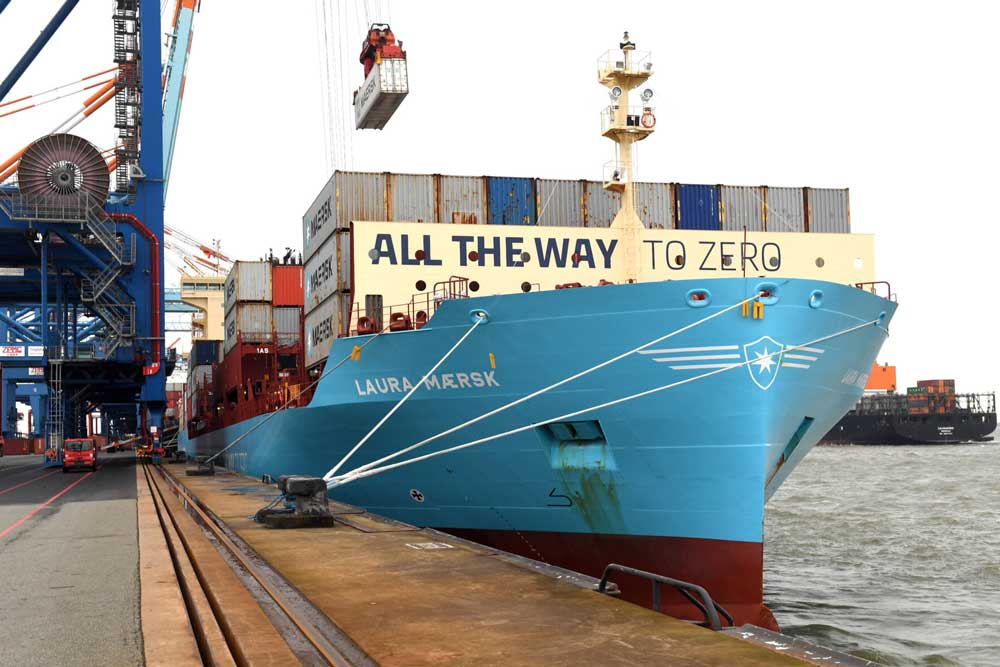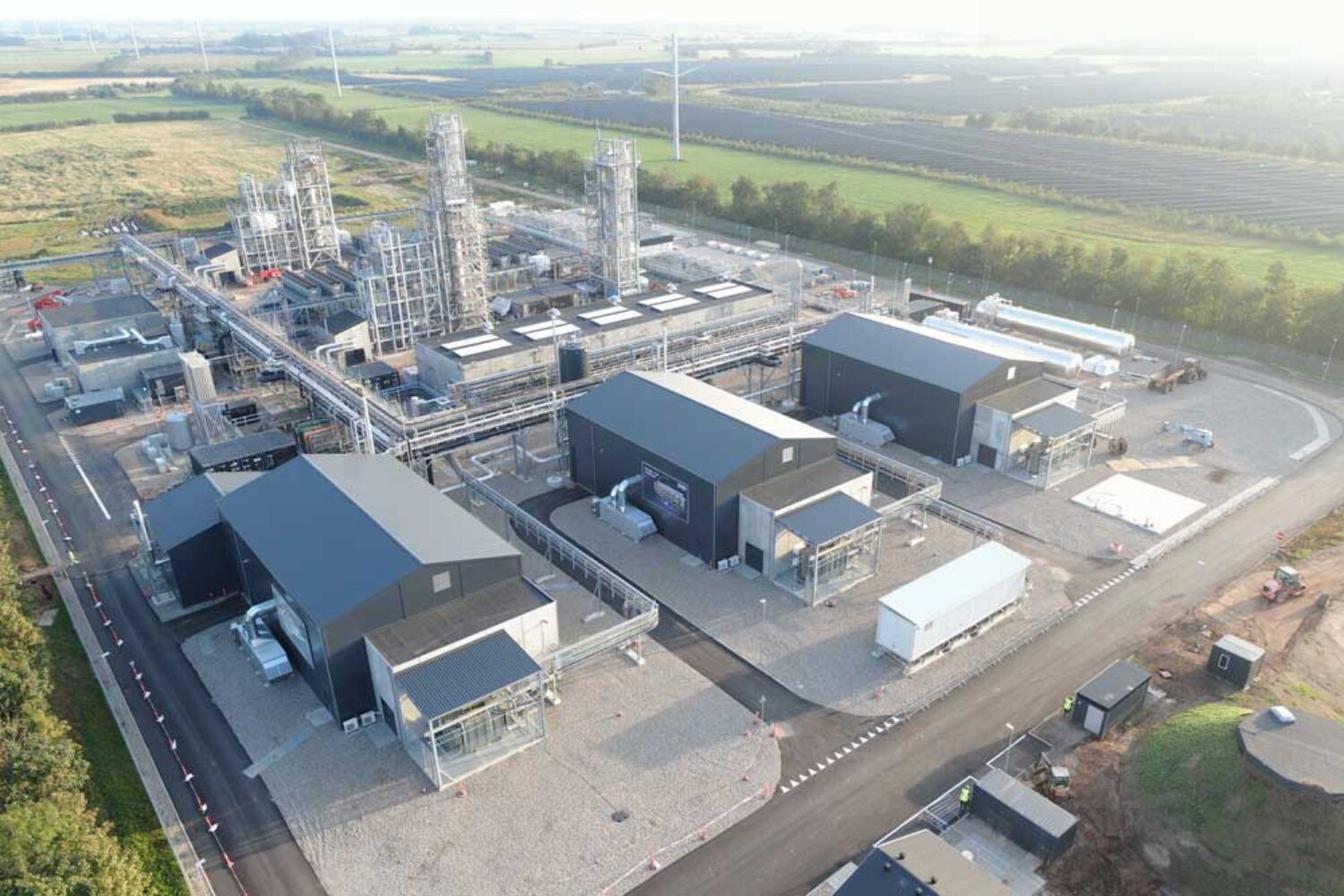The world’s first large-scale e-methanol plant has gone into operation in Apenrade, Denmark.
It will be able to produce 42,000 tons of sustainable methanol per year. One of the most important customers is the shipping company Maersk.
The plant was developed by European Energy and operated in collaboration with Mitsui & Co. It is the first of its kind in the world that can produce e-methanol on a commercial scale. It is powered entirely by renewable energy: The electricity comes from the neighboring Kassø solar park, the largest in Europe with a capacity of 304 MW. According to the operators, the plant makes it possible to produce e-methanol with a 97% reduced CO2 footprint compared to fossil products.
“The commissioning in Kassø is an important step forward in putting Power-to-X technologies into practice,” said Knud Erik Andersen, CEO of European Energy. “This is renewable energy in action, changing the way we use electricity.”
“We are honored to play a central role in advancing this groundbreaking project that promotes integrated approaches along the entire product value chain as part of our Global Energy Transition strategy,” said Takashi Furutani, Senior Executive Managing Officer at Mitsui & Co. “Kassø is an example of the importance of international collaboration in scaling low-emission solutions.”
“Laura Maersk” bunkering e-methanol from Apenrade
The project aims to enable the decarbonization of sectors that are difficult to electrify. In addition to the plastics industry, represented by customers Lego and Novo Nordisk, this is primarily the shipping industry. The shipping company Maersk will use the e-methanol from the plant as fuel. The “Laura Maersk”, which will be delivered in 2023, will soon be bunkering sustainably produced methanol from the plant.

“We are very pleased with the first delivery of e-methanol from the Kassø plant,” said Rabab Raafat Boulos, Executive Vice President and COO at Maersk. “This is an important milestone in our global efforts to source alternative fuels for our shipping fleet. The future of shipping must embrace multiple fuel types, with methanol playing a key role in the industry’s net-zero targets.”
The shipping company is pursuing the ambitious goal of zero greenhouse gas emissions by 2024. By 2030, at least 25% of sea freight is to be transported using environmentally friendly fuels. The “Laura Maersk”, a feeder with a capacity of 2,100 TEU, is an important step on this path as a ship powered entirely by methanol. (JW)














